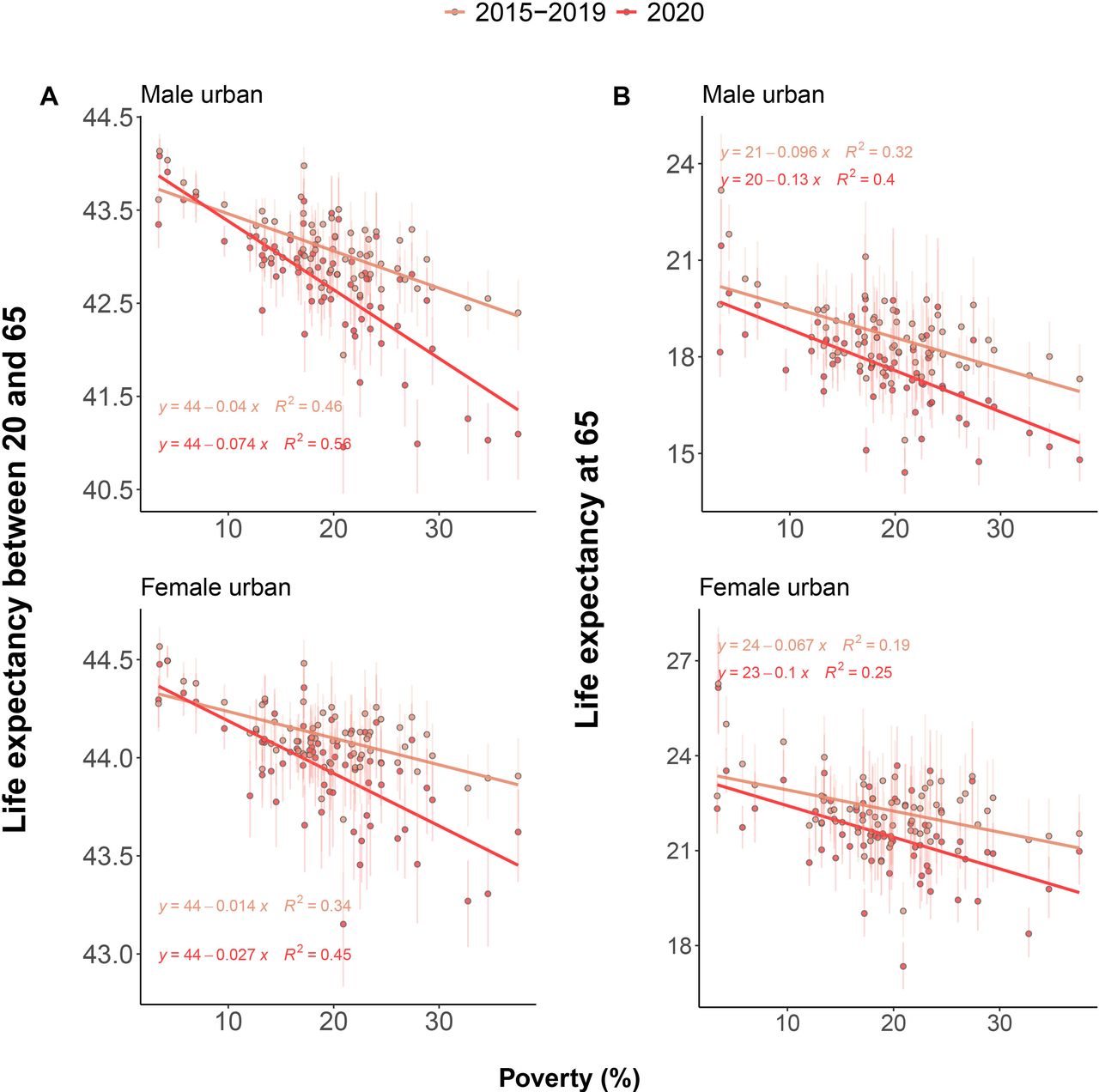Life expectancy losses were unevenly shared in Chile during COVID-19, according to a new study published yesterday in the British Medical Journal, and conducted by Oxford’s Department of Statistics and the Leverhulme Centre for Demographic Science.
The Oxford team aimed to quantify the pandemics impact on life expectancy across municipalities and socioeconomic factors. They found that life expectancy losses during the pandemic were most predominant in urban areas, with males losing 1.89 years and females 1.33 years between 2019-2020.
Analysis of life expectancy in 2020 revealed that 76% of Chile’s non-urban population lived in municipalities where life expectancy had fallen below 2015 levels, rising to 78% in urban populations.
This change is substantial, reversing the substantial progress Chile had made in reducing premature mortality and increasing health standards during the first fifteen years of the 21st century. Chile became a hotspot of the pandemic with 1.5 million COVID-19 deaths being reported between June 2020 and March 2022.
Study co-author Dr Gonzalo Mena from Oxford’s Department of Statistics said, ‘’While national figures point to life expectancy losses of 11 months for females and 1.3 years for males, it’s only by looking at the subnational level that you discover demographic inequalities in the data. Not only were life expectancy losses greater in urban areas, they also hit poorer areas harder.’’
The researchers found that life expectancy losses were unevenly shared across municipalities, age, sex and poverty groups. These inequalities in urban areas were largely driven by much lower-than-average life expectancies in working age groups (20-65 year old’s).
While there were no significant changes in year-to-year fluctuations of life expectancy for 20-65 year old’s in non-urban areas from 2019-2020, the researchers observed a significant decrease of 50.9% for males and 50.6% for females in urban areas. By using social deprivation indicators including poverty and crowdedness, the researchers were able to better understand the factors driving this spike in inequality.
According to the paper, ‘Results show a strong historical negative correlation between life expectancies in both age groups, sexes and poverty levels. Males in the top poverty decile have a 4.39-years lower life expectancy than in the bottom decile. They also live on average 0.92 less years between 20 and 65, and 2.22 from 65 onwards. For females, these numbers are 2.51, 0.31 and 1.55 years.’

Poorer urban municipalities therefore suffered a double burden of lower life expectancy and greater losses. This is consistent with previous research that documented larger mortality increases for lower educated groups in Chile and a positive association between income and life expectancy at retirement.
The researchers suggest that the working age groups availability to work from home and be less exposed to COVID-19 across poverty levels is a possible explanation, alongside a weak health system and postponed treatments.
Study co-author Dr José Manuel Aburto from the Leverhulme Centre for Demographic Science added, ‘’This and other studies provide mounting evidence that the COVID-19 pandemic has reversed life expectancy progress in Chile, with these losses unevenly shared amongst poorer working age groups. However, more accurate and timely data on other causes of death are vital for explaining substantial changes in life expectancy.’’
This study provides a first outlook on all-cause mortality with future studies needed to analyse the consequences of the COVID-19 pandemic. The paper concludes, ‘New strategies incorporating a public health perspective that considers widening inequalities should be implemented to minimize the impacts of the COVID-19 pandemic on the health status of the Chilean population both immediately and in the long term.’
The study can be found here: https://bmjopen.bmj.com/content/12/8/e059201
Notes for Editors
For more information and interview requests, please contact the Leverhulme Centre for Demographic Science media team (LCDS.Media@sociology.ox.ac.uk) and co-author of the study José Manuel Aburto (jose-manuel.aburto@sociology.ox.ac.uk).



